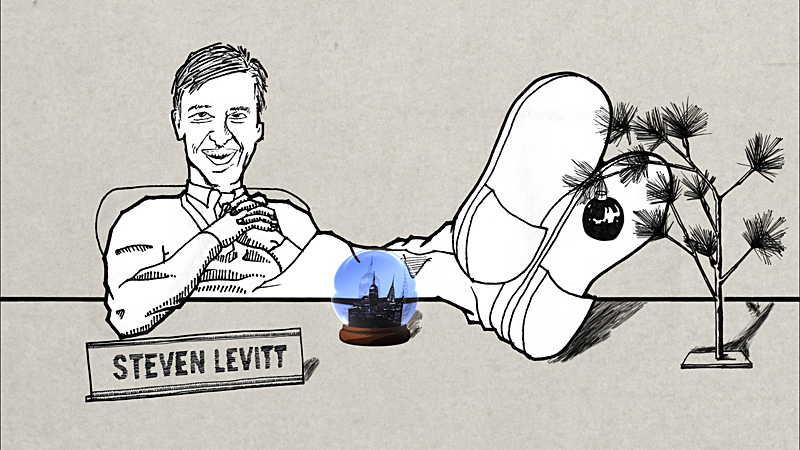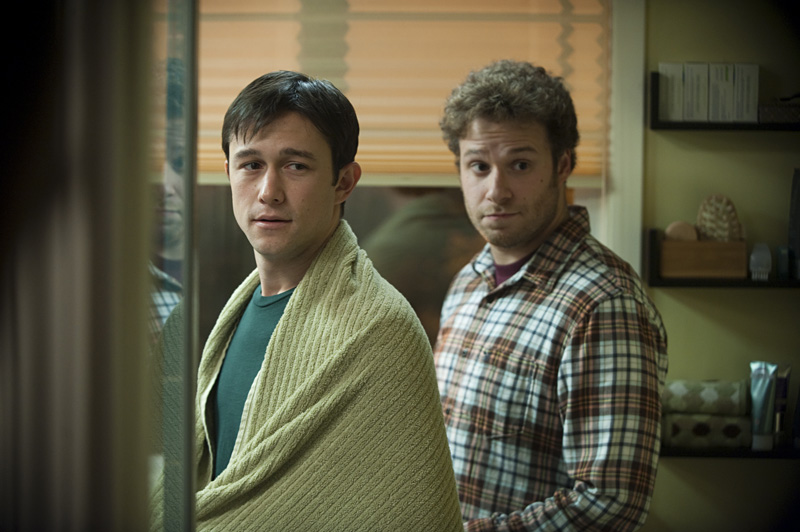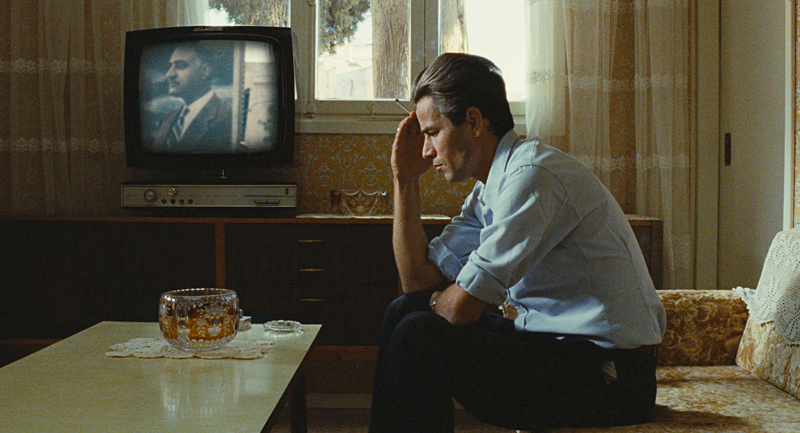A quartet of uneven TV pilots posing as a full-length documentary, Seth Gordon’s anthology Freakonomics pulls case studies from Stephen Dubner and Steven Levitt’s bestselling book of pop math and hands them over to famous doc filmmakers to make their own. The Seattle-raised Gordon (The King of Kong) knits together the resulting shorts with interludes that attempt to build a coherent thought narrative out of clever animation and talking-head interviews with the authors. Though that overarching throughline never really materializes, one of the pleasures of Freakonomics is seeing how very different filmmakers—Morgan Spurlock (Super Size Me), Alex Gibney (Enron: The Smartest Guys in the Room), Eugene Jarecki (Why We Fight), and the team of Rachel Grady and Heidi Ewing (Jesus Camp)—approach basically identical material. “Pure Corruption,” Gibney’s meditation on sumo wrestling and corporate malfeasance, is the most artful and thoughtful of the four segments; Jarecki’s is the weakest. The final section, Grady and Ewing’s “Can You Bribe a Ninth Grader to Succeed?”, drops us in the middle of a study examining how kids respond to being offered $50 a month for decent grades. The simple question of whether the two profiled underachievers will collect their money gives Freakonomics a welcome jolt of narrative energy. And while the study isn’t exactly a success, watching these economists sort-of-fail tells viewers more about real research—the messy and difficult process by which thinkers in all disciplines make sense of the world—than anything else here. You can get ur Freakon; I’ll take Econ.
Freakonomics: Read the Book Instead








